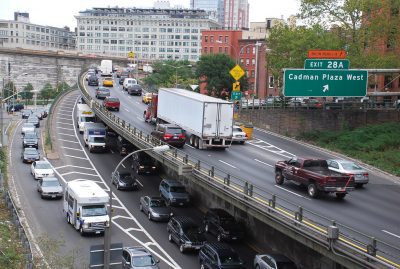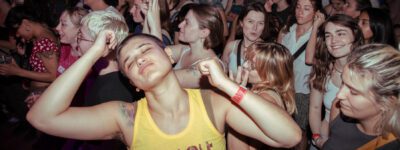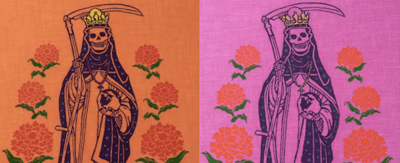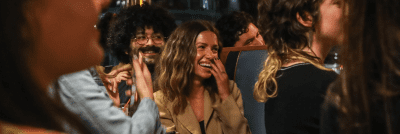30 Under 30, Class of ’18: Giovania Tiarachristie, Urban Planner
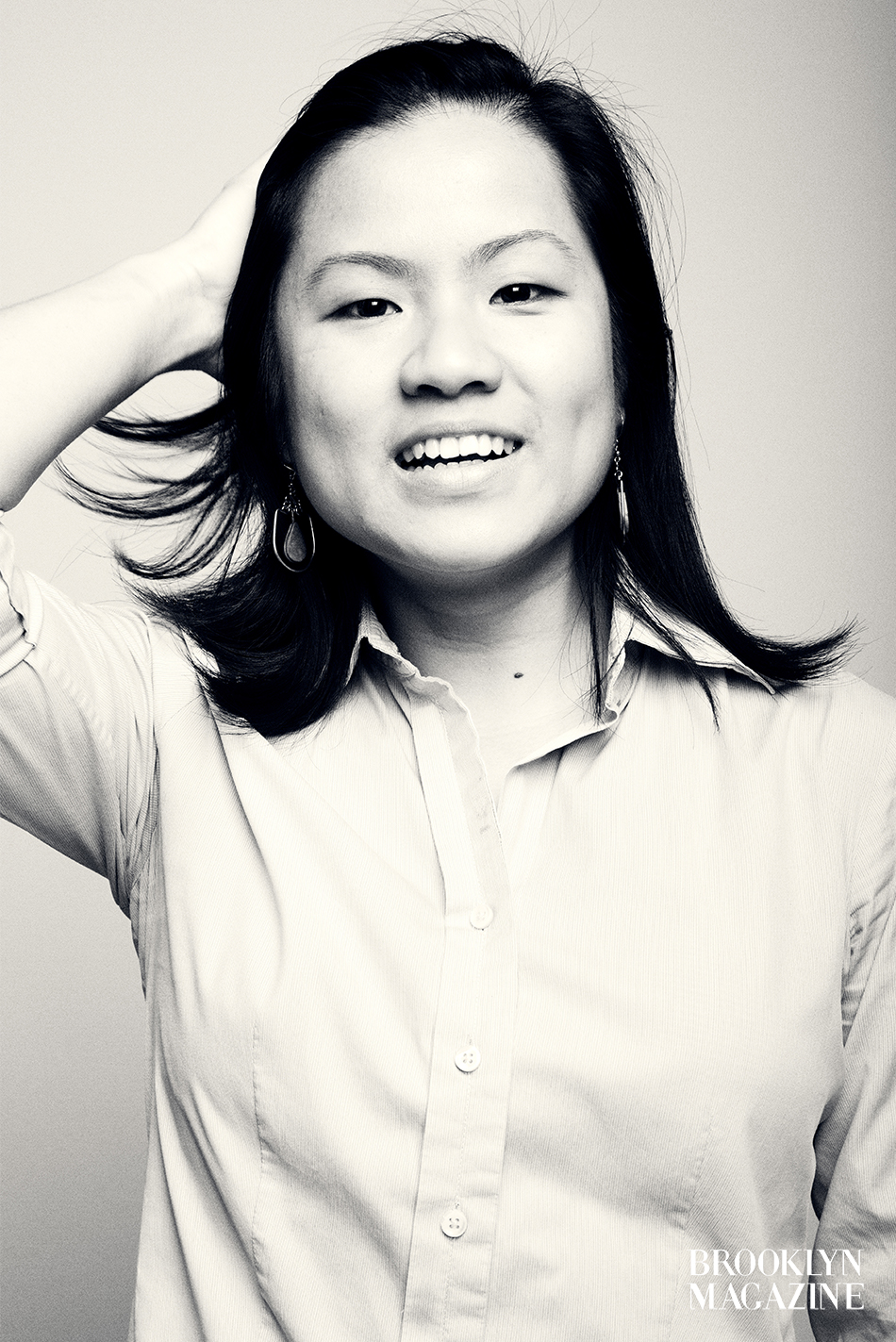
Age: 26
Pronouns: She/her
Neighborhood: Weeksville (Crown Heights)
Most Likely To: Ride their bike in 20-degree weather
Favorite Quote: “Loneliness does not come from having no people around, but from being unable to communicate the things that seem important to oneself.” – Carl Jung
After completing her master’s thesis at Pratt, Giovania Tiarachristie, or “G”, revived the Diversity Committee as a co-chair with an aim to improve diversity and cultural literacy in the professional planning field. G is also a neighborhood planner at the New York City Department of Housing Preservation and Development, where she helps communities ensure that new affordable housing promotes diverse and more equitable neighborhoods. While Brooklyn continues to gentrify rapidly, it’s important to have leaders, like G, who understand the importance of building equality for people of color and minorities.
What is your earliest memory associated with what you do now?
When I was 15, my brother was separated from my family due to immigration paperwork complications, and had to return to Indonesia, from where we had immigrated 5 years prior. I remember the confusion, sadness, powerlessness, and anger it left me with. This was my first realization that the laws and policies that exist do not protect everyone, and often negatively impacts those who don’t have a political and economic voice—particularly low-income communities of color and immigrants.
Throughout the next several years, I was drawn to studying globalization, racial and environmental justice, and the displacement impacts of economic development initiatives, locally and globally. I noticed a clear pattern of who benefits, and who bears the burdens. I realized that the people making these decisions weren’t necessarily people who experienced or understood the issues. Over time, I learned that the planning profession has played a key role in perpetuating these inequities in the places we live. I became a planner myself because I believed that planning could also have the power to promote more just and equitable communities. I knew it was my calling to ensure that historically marginalized groups have a voice, a seat at the decision-making table, and a sense of agency and belonging.
When did your occupation become real to you?
One of my initial projects I was tasked with at HPD’s Office of Neighborhood Strategies, was leading a community engagement process on a Request for Proposals (RFP) for mixed-use affordable housing on a public site. The site had a complex and tense political history with the community. With my colleagues, we dug into the history and listened to community leaders and organizations on their goals, priorities, and lessons learned from the past.
Building on this initial research, I designed a set of small-table interactive activities for three community visioning workshops that would build on previous community work; promote an inclusive, transparent, and accountable process; and collect meaningful feedback of what residents want to see developed on the site to inform future development. I designed activities involving cards, a hypothetical building, stickers, tickets, and drawing. I wanted the activities to be creative, fun, and educational on the limits and possibilities, while promoting constructive dialogue. Building on my own working-class immigrant experience, I ensured we had options for snacks and refreshments, multi-lingual materials, bilingual facilitators and translators, and childcare options.
Long-time community leaders were skeptical at first. But to look around the room and see real constructive dialogue happening between residents, community groups, and City agency staff was almost magical. When we presented findings and next steps, people shared with us that for the first time, they felt the City really listened. We were building relationships with people. We were revolutionizing the way the City works with communities and incorporates their voice in development, before it happens. I felt alive, and I knew this is exactly where I was supposed to be.
How does Brooklyn/your neighborhood particularly inform your work?
They say urban planners never really stop working, and it’s very true in my case as I leave my office and go home to Brooklyn. I work on urban inequity issues, specifically racial and economic justice. And thus, anywhere I go around the city or the world, I continue to see my surrounding through those lenses.
Brooklyn, in particular, is the epicenter of inequitable race/class impacts of urban policy in almost all its forms. Historically, it has experienced mass migration, redlining, white flight, disinvestment, urban renewal, and now, rapid gentrification and displacement. I live in Weeksville, one of the first freed Black towns in the U.S., and a part of Crown Heights that is not yet gentrified. But the wave has been approaching from the west over the last few years. My relationships with my neighbors help me stay in the loop of the changes happening, and provide a context for the work that I’m doing. I see the changes and feel the fears, and at the same witness the real poverty, struggles, resilience, and love of my neighbors, daily. It makes the work more personal.
In addition, continuing to live amongst a concentration of other people of color, and the stark contrast of going to work meetings where it remains majority white around the table, have probably made me more of an unrelenting leader in the work that I do to improve diversity in the profession.
What do you feel is most challenging about being where you are now?
I would say keeping hope alive. Thinking about affordable housing, gentrification, structural racism, and capitalism every day, isn’t easy for my spirit. I’m surrounded by the issues, and though it’s a humble reminder of its pressing realities, it is a challenge to not allow it to paralyze me. In order to keep going, I have to believe a world more just and equitable is possible. I have to remember that it’s an inter-generational struggle that’s worth fighting. I draw cartoons about a sheep’s journey to self-love and battle against self-sabotage to take myself less seriously.
What’s most rewarding?
I would say one thing that feels rewarding and victorious, of course, is when the City issues new legislation, policies, or programs, that’s directly informed by the community. There’s been a lot of progress, for example, on Certificate of No Harassment, Community Land Trusts, deeper affordability, M/WBE requirements, etc. But in the day to day, what’s most rewarding for me personally is the social work aspect—listening, helping someone feel heard, and connecting them to resources.
5 spots in Brooklyn people should know about?
Learn: Weeksville Heritage Center
Organize: May Day Space
Dance: ASASE YAA Center for the Arts
Feast: East Harbor Seafood Palace
Poo: Newtown Creek Wastewater Treatment Plant
What’s your most significant accomplishment to date?
Three things, and they all happened last year (2017): 1) Worked together with residents, community groups, sister agencies, and community groups over the last year to create the Brownsville Plan. 2) Led a team of 8 all-volunteer staff, each with full-time jobs, to organize the Hindsight Conference on urban planning through an equity lens (all-day, 28 sessions selected from 61 proposal submissions, sold out with 400+ attendees), in four months. 3) Use my savings to buy a small place for my parents to call home (not in New York City of course, can’t afford that shit).
Who/what inspires you?
People who have struggled, endured, and remained resilient. Especially those who continue to carry grace and unconditional love in their day to day.
Thinking about the future, where do you see yourself in the next 30 years?
Retiring, ideally, but probably not as I don’t know any planners who have actually retired. Nevertheless, I see myself as a leader that has helped to shift the mainstream planning profession to one that centralizes diversity and social equity as a lens. Perhaps I will have my own consulting firm—or some worker co-op LLC. I see myself as a teacher—helping to guide, support, and mentor young people; passing down the torch to promote more equitable and just communities.
Beyond my career, I see myself as a creative being, vulnerable and unapologetic in my own art; more deeply connected to the earth and closer to my own spirit; self-sufficient and resourceful; generous with laughter and grace.
What’s next for you?
While I continue to serve New Yorkers as a planner for the City, I’m also building up my Diversity and Inclusion (D&I) Strategic consulting (marginurbanists.co)—building the capacity of planning, design, and service sector organizations to better recruit and retain diversity, build cultural competency, and incorporate equity principles into their organizational models.
On the side, I’m also drawing and cartooning more (@coded_toons on IG). I hope to illustrate more social justice and mental health educational materials, and homemade children’s books here and there. Hit me up if you want to collaborate!
FOLLOW GIOVANIA
INSTAGRAM
You might also like 

















